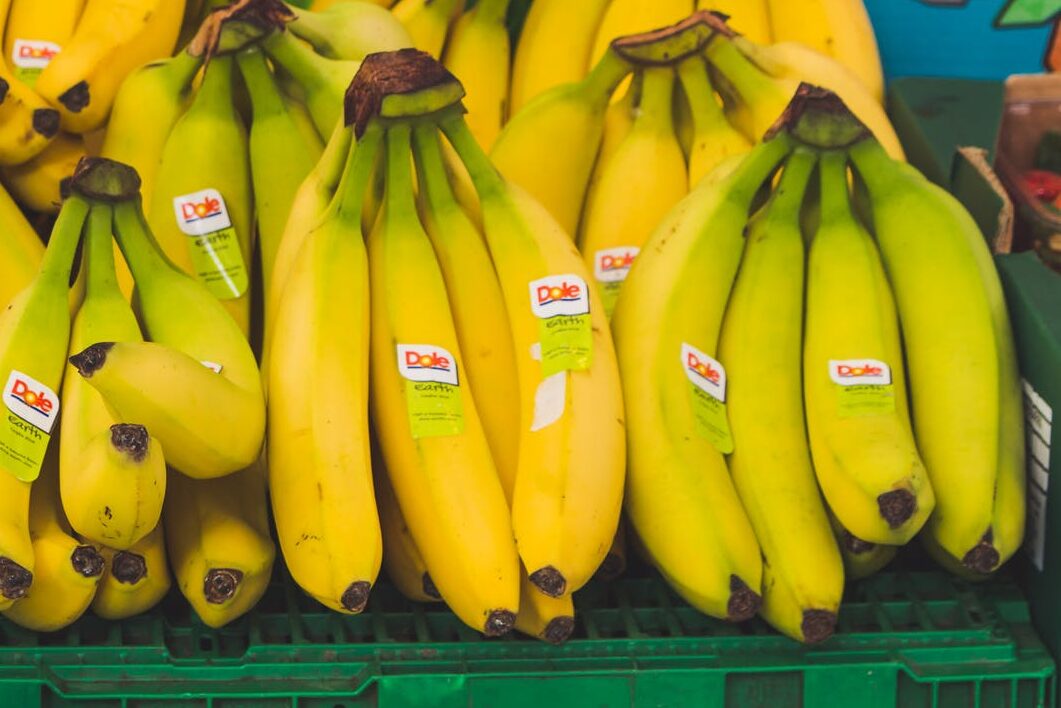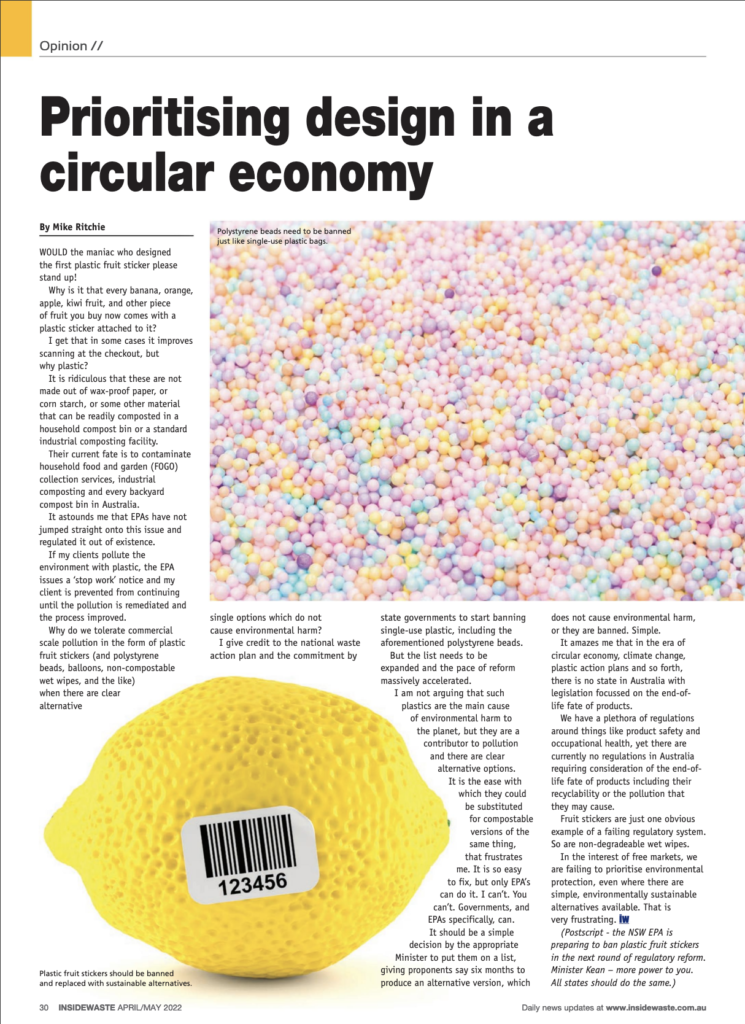Prioritising design in a Circular Economy
By: Mike Ritchie, MRA Consulting Group

Why is it that every banana, orange, apple, kiwi fruit, etc that you buy in a supermarket, now comes with a plastic sticker attached to it?
I get that in some cases it improves scanning at the checkout, but why plastic?
It is ridiculous that these are not made out of wax proof paper or corn starch or some other material that can be readily composted in a household compost bin or a standard industrial composting facility.
Their current fate is to contaminate household food and garden (FOGO) collection services, industrial composting and every backyard compost bin in Australia.
It astounds me that EPA‘s have not jumped straight onto this issue and regulated it out of existence.
If my clients pollute the environment with plastic, the EPA issues a ‘stop work’ notice and my client is prevented from continuing until the pollution is remediated and the process improved.
Why do we tolerate commercial scale pollution in the form of plastic fruit stickers (and polystyrene beads, balloons, non-compostable wet wipes, and the like) when there are clear alternative options which do not cause environmental harm.
I give credit to the national waste action plan and the commitment by State governments to start banning single-use plastic, including the aforementioned polystyrene beads.
But the list needs to be expanded and the pace of reform massively accelerated.
I am not arguing that such plastics are the main cause of environmental harm to the planet, but they are a contributor to pollution and there are clear alternative options. It is the ease with which they could be substituted for compostable versions of the same thing, that frustr
Tweet
It should be a simple decision by the appropriate Minister to put them on a list, giving proponents say six months to produce an alternative version, which does not cause environmental harm, or they are banned. Simple.
It amazes me that in the era of circular economy, climate change, plastic action plans etc there is not one State in Australia with legislation focussed on the end of life fate of products sold into the economy.
We have a plethora of regulations around things like product safety and occupational health, there are currently no regulations in Australia requiring consideration of the end of life fate of products including their recyclability or the pollution that they may cause.
Fruit stickers are just one obvious example of a failing regulatory system. So are non-degradeable wet wipes.
Tweet
In the interest of free markets, we are failing to prioritise environmental protection, even where there are simple, environmentally sustainable alternatives available. That is very frustrating.
(Postscript – the NSW EPA is preparing to ban plastic fruit stickers in the next round of regulatory reform. Minister Kean – more power to you. All States should do the same.)
Mike Ritchie, is the Managing Director at MRA Consulting Group.
This article has been published by the following media outlets:




